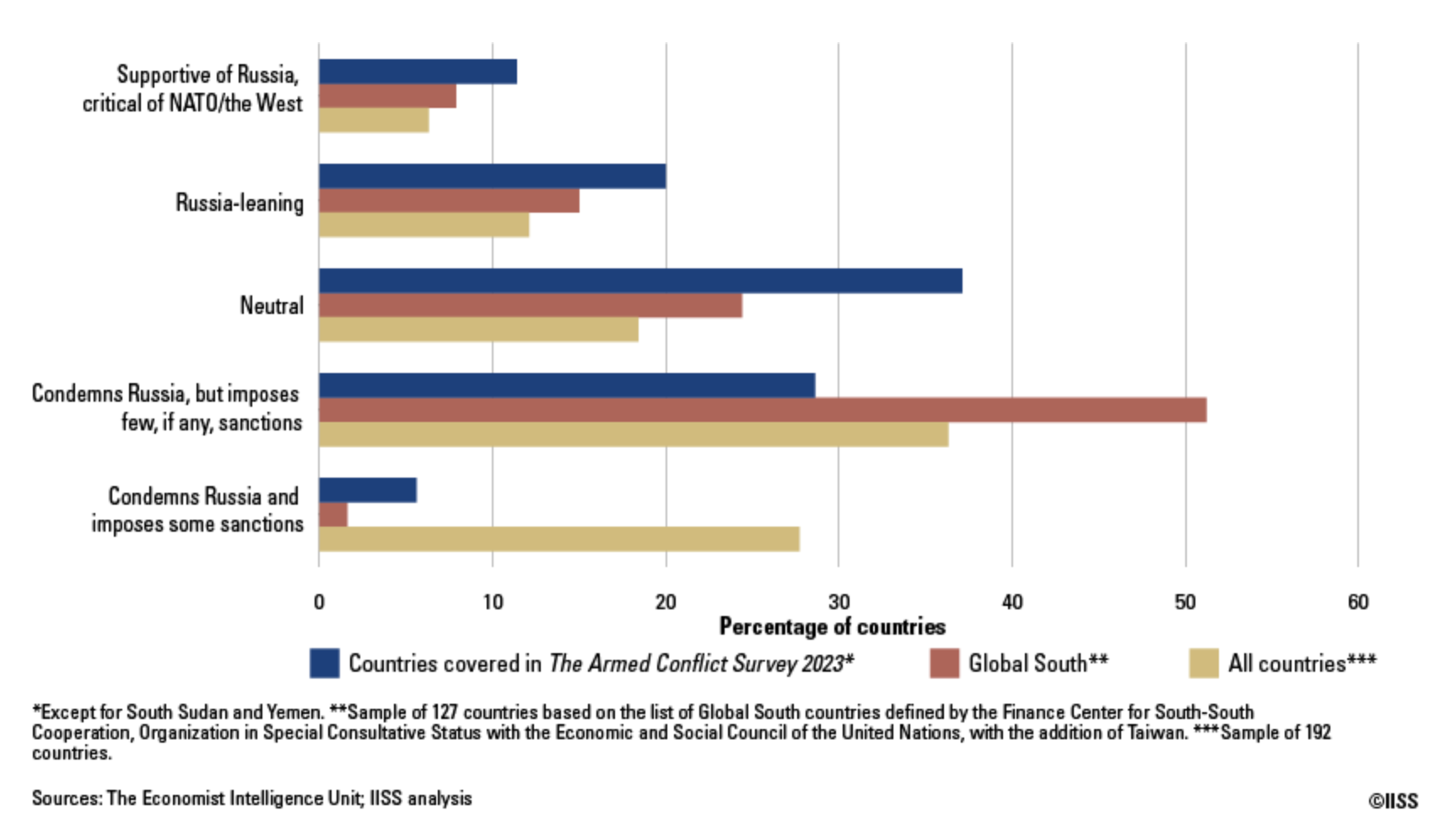1/ I enjoy doing this and appreciate the support. Consider becoming a supporter, if you're not already.
2/ Know someone who might like to read this? Share it with them via the links at the bottom of the newsletter.
Some things worth thinking about as we start the week. As ever, if you have something you want to draw my and readers' attention, let me know.
There are four items today, and the last two—on airports as Premier League teams, and on the current western snow drought and its consequences—are for premium subscribers only.
01. Regional Conflicts on the Rise Worldwide
- Record high number of regional conflicts: The Armed Conflict Survey by the International Institute for Strategic Studies (IISS) documented 183 conflicts in 2023, marking the highest number in three decades.
- Unanticipated increase in fatalities and violent events: There has been a notable increase in the intensity of conflicts, with fatalities rising by 14% and violent events by 28%.
- Elevated role of nonstate armed groups: Increasing difficulties in resolving conflicts due to the elevated role of nonstate armed groups and assertive policies of authoritarian states.
- Rising tensions between the US and China.
- Conflict intensity has continued to rise. There has been a 14% increase in fatalities and a 28% increase in violent events.
- Climate is making things worse. The growing climate crisis is exacerbating the root causes of conflicts and weakening institutional structures in fragile countries.
This shouldn't be surprising and follows from the current state of the world, with increasing interlinkages, growing conflict over resources and climate, and the rise of populism and political strongmen, all of which are both influenced by and increase fragility.

Further reading:
• IISS 2023 armed conflict report https://www.iiss.org/publications/armed-conflict-survey/2023/editors-introduction/
• It’s Not Just Ukraine and Gaza: War Is on the Rise Everywhere - Bloomberg https://www.bloomberg.com/opinion/articles/2023-12-10/it-s-not-just-ukraine-and-gaza-war-is-on-the-rise-everywhere
02. Why LLMs Are ... Not Good Enough
While current generation large language models get unending attention, it is worth pointing out that they are, in a sense, not nearly good enough. They are impressive in a host of domains, so should not be ignored, but they are not nearly potent enough to warrant the more extreme existential risk fretting.
Instead, they are trapped in a kind of local maxima closer to what MIT economist Daron Acemoglu has called "so-so" automation: they are good enough such that they are adopted quickly and potentially put many people out of work, but aren't yet good enough to produce wide societal surplus and broader gains.
When might that change? Some might respond, "Never, I hope", and that is a respectable position. There is nothing wrong with standing athwart ill-understood and widescale change and saying to its noisiest booster, "Slow it down". On the other hand, there is a growing understanding of what LLMs can and cannot do (see the first two readings below), and the potential for them to be more productively applied in areas like drug discovery, as opposed to making it easier to cheaply create tricky contracts with which people can sue one another.
As economist Robert Gordon (and others) have shown, American growth and productivity have fallen sharply in recent years, a consequence, in part of the low-hanging innovation fruit being picked decades earlier. Further progress has required larger teams, much more capital, and more time, and the results have been far less dramatic, in general, than the so-called Great Inventions of the past, from air conditioning to antibiotics. The potential for advances on current AI to alter this dynamic—with, admittedly, unknowable consequences—should not be underestimated.
Further reading:
- What LLMs cannot do https://ehudreiter.com/2023/12/11/what-llms-cannot-do/
- The Impact of Large Language Models on Scientific Discovery: a Preliminary Study using GPT-4 https://arxiv.org/pdf/2311.07361.pdf
- • Automation and New Tasks: How Technology Displaces and Reinstates Labor https://pubs.aeaweb.org/doi/pdfplus/10.1257/jep.33.2.3
- The Rise and Fall of American Growth https://www.amazon.com/Rise-Fall-American-Growth-Princeton/dp/0691147728
03. Airports as Premier League Soccer Clubs
Author J.G. Ballard once described airports, those ephemeral villages inhabited by travelers moving through modernist architecture, as "the true city of the 21st century". Ballard lived near Heathrow outside of London, and he reveled in the contradictions of its transient modernity just outside a city hanging on furiously to ancient architecture.

